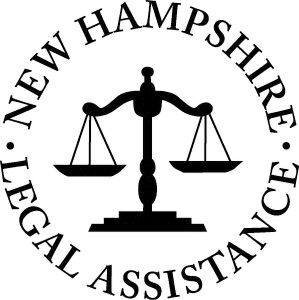Prohibiting Discrimination Against Voucher Holders in New Hampshire
“We don’t take Section 8.” This is the devastating, and all too common, response many voucher holders in New Hampshire receive from landlords and property managers while searching for a place to live. Unfortunately, it isn’t yet illegal.
The Housing Choice Voucher (HCV) Program, also known as the Section 8 Voucher Program, is the largest federal housing program providing subsidies to low-income individuals. Local housing authorities receive federal funds from the Department of Housing and Urban Development (HUD) to administer the HCV Program. Participants in the program receive vouchers that they use to find housing in the private market that they otherwise could not afford, and they are responsible for paying approximately 30% of their household income on rent.
If a landlord agrees to accept a tenant with a voucher, the housing authority administering the voucher enters into a contract with the landlord making monthly payments directly to the landlord for the remaining portion of the contract rent, up to the “payment standard,” which is a set fair market rent based on the location of the unit and the number of bedrooms. For example, the payment standard for a two-bedroom unit in Concord, NH, is currently $1,237. To ensure the housing rented to voucher holders is safe and sanitary, housing authorities conduct inspections of the units before entering a contract with the landlord. These inspections verify that the rental units meet HUD’s housing quality standards (HQS).
As the name suggests, the program is designed to allow participants flexibility and choice in where they live. However, in New Hampshire, landlords can still legally refuse to accept tenants who participate in the HCV Program. Tenants who cannot find a landlord who will accept their voucher within the timeframe set by HUD and local housing authorities will lose the voucher. This loss is devastating because most applicants for vouchers have to wait at least five years to receive one.
Addressing Voucher Discrimination in New Hampshire
Fair housing laws in New Hampshire currently do not prohibit landlords from having a blanket policy of refusing to accept tenants with vouchers. House Bill 1291, a bill that failed to find support in the state legislature, aimed to make this form of discrimination illegal. If passed, this law would have become part of the state’s Law Against Discrimination and would have prohibited landlords from refusing to rent to someone because of participation in the HCV Program. The bill allowed landlords to apply other normal screening policies, reject an applicant if the rent for the apartment is higher than what the housing authority would approve, and reject an applicant if the unit does not meet housing quality standards. But the House Judiciary Committee, in an 11-10 vote, found the bill “inexpedient to legislate.” It was then effectively killed by being tabled on the House floor.
Prohibiting discrimination against voucher holders is critical for low-income Granite Staters, particularly older adults and individuals with disabilities. In New Hampshire, the New Hampshire Housing Finance Authority (NHHFA) administers the largest HCV Program. Roughly two-thirds of participants in the program are individuals with disabilities. Of 1,581 vouchers issued by nine of the state’s housing authorities in 2021, 294 expired. Nearly 300 households in the state lost their golden ticket, the chance to rent safe and affordable housing. Such a result is tragic, especially in a state with rising rents and a less than one percent vacancy rate.
Voucher holders should not be prevented from accessing housing merely because they need help affording market rate rent. Payments from housing authorities for the subsidized portion of the rent are guaranteed and consistent. Indeed, voucher holders are less likely to miss rental payments if their income fluctuates because housing authorities will reduce the portion of rent the tenant is responsible for, with a corresponding increase in the portion paid by the housing authority, based on reductions in income. Low-income tenants in New Hampshire need protection from discrimination based on participation in the HCV Program if they are to receive a fair chance at housing of their choice.
A version of this article appeared in the Spring 2022 issue of the Disability RAPP.

